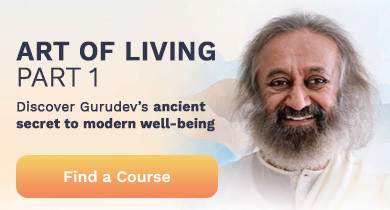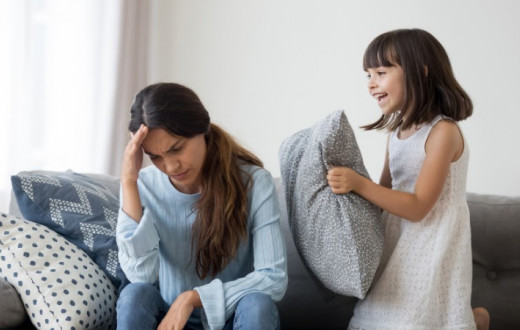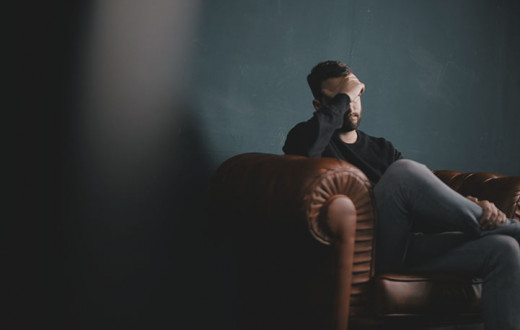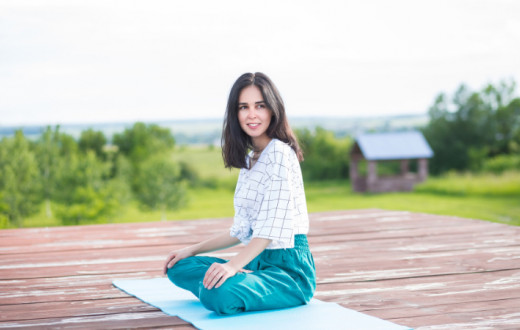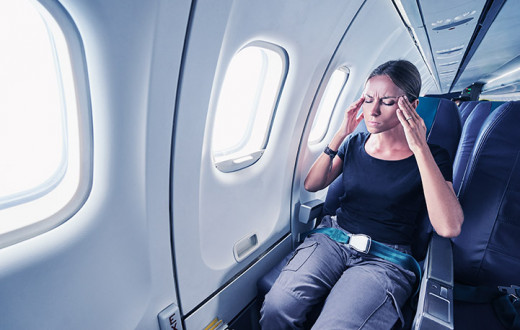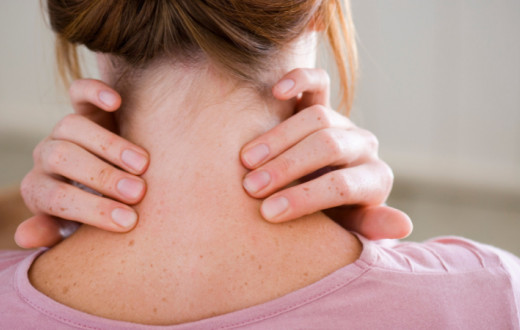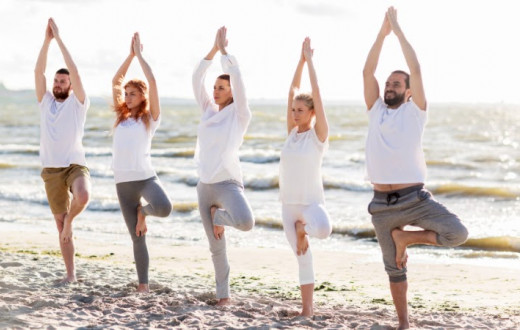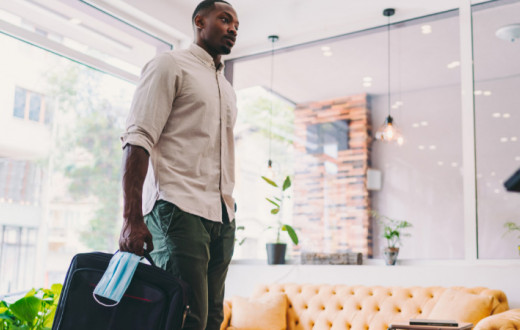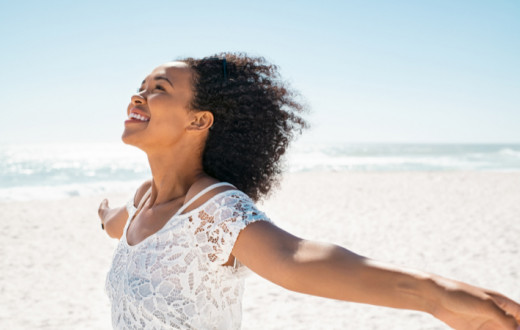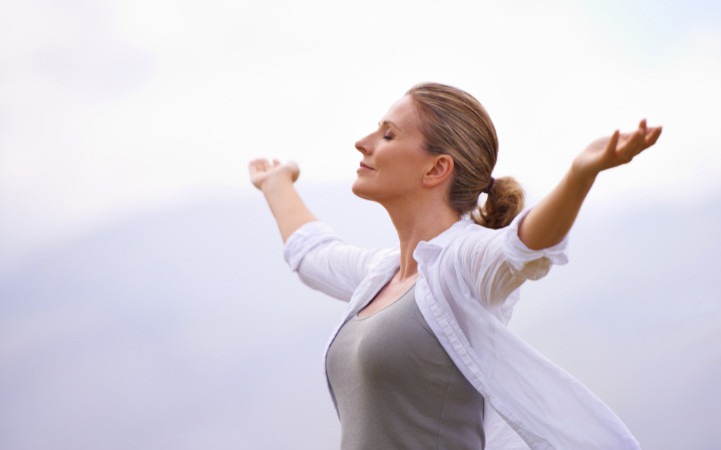
It is estimated that currently, almost 20% of adults have anxiety disorders of one kind or another. That's a lot of anxiety! Fortunately, there are ways to calm anxiety and increase well-being. Read on to learn more about anxiety and how to start living a stress-free life today.
What is anxiety?
Anxiety is a feeling of fear, dread, and uneasiness. These intense feelings can be triggered when remembering something in the past or is happening in the present moment, but more often, these feelings and anxious thoughts are about future events that may or may not happen.
What if I lose my job?
What will people think of me?
Did I forget to turn off the oven?
What if I get sick?
What if I never marry?
What if I can’t (fill in the blank)?
It’s one thing to have anxious thoughts occasionally, but when anxiety is out of control, we need a way to manage our feelings and emotions.
What causes anxiety?
Because anxiety is a complex condition usually resulting from more than one contributing factor, it can sometimes be challenging to narrow down the specific cause. A mental health professional may be needed if the cause is unclear or a combination of factors that require medical attention are present, for example, medication issues, hormone imbalances, and heart disease.
Here are some of the possible causes of anxiety:
- Stress
- Social isolation
- Childhood trauma
- Hormone imbalances and thyroid problems
- Chronic illness
- Heart disease and diabetes
- Genetics
- Brain chemistry
- Mental disorders
- Medications
- Recreational drugs
- Caffeine
- Environmental factors
- Loss of a loved one
- Finances
Out of all of these factors, there are some things you can control—the most important one being stress. Keep reading to find out how you can manage stress and calm anxiety.
What does anxiety feel like?
Nearly everyone has experienced anxiety at one time or another. Here's a breakdown of all the possible symptoms of anxiety, though these symptoms could also be attributed to other health conditions.
Physical symptoms of anxiety
- Increased heart rate
- Chest pains
- Rapid or shallow breathing
- Headaches
- Nausea or diarrhea
- Sweating
- Trembling
- Sleep disturbances
Mental symptoms of anxiety
- Irrational thinking
- Poor decision making
- Unable to manage challenging situations
Emotional symptoms of anxiety
- Feeling nervous
- Feeling restless
- Feeling tense
- Looking for reassurance
- Unable to stop worrying
- Feelings of dread
- Depression
- Paranoia
How to calm an anxiety attack
Grounding. Two standard grounding methods, 5-4-3-2-1 and the 3-3-3 rule, involve shifting attention through the senses, basically using distraction to gain calm and relieve anxiety.
Breathwork. Straw breath is a popular tool for anxiety and panic attacks. It is easy to learn and to remember when you feel anxious or a panic attack starts to happen. Watch this video to learn how to practice and experience this relaxing technique right now.
How to calm an anxiety attack while pregnant
Pregnancy can bring all sorts of worries and anxieties. Thankfully, straw breath is a quick and easy method to reduce an anxiety attack anywhere, anytime.
To ensure anxiety doesn’t cause any issues with your pregnancy, use self-care methods like warm baths, prenatal yoga, body scan (Yoga Nidra, see below), straw breath (see above), and mantra meditation to prevent anxiety attacks.
How to calm an anxiety attack at night
When you feel anxious at night, it can be easy for fear to take over and could even lead to a complete panic attack. But don't worry, there is help for this type of anxiety also.
If at all possible, avoid stressful situations before bed. But when negative thoughts and one worry after another fill you with fear, you can stop anxiety by using breathwork and guided meditations.
In addition to straw breathing, you can do a body scan (a progressive muscle relaxation exercise) right from bed.
Foods that calm anxiety
The Mayo Clinic says that eating foods high in complex carbohydrates, like whole grains, may help with anxiety. Complex carbohydrates may raise brain serotonin, which has a calming effect. Foods rich in B, C, and D vitamins, magnesium, zinc, and tryptophan can also help calm anxiety.
Include these foods for a balanced diet to help reduce anxiety:
- Oats and quinoa
- Citrus fruits and pineapple
- Berries
- Dark chocolate
- Spinach or Swiss chard
- Legumes
- Nuts and seeds
- Tofu
Avoid, limit, or discontinue using these to further help in reducing anxiety:
- Caffeine
- Nicotine
- Alcohol
- Other stimulants
- Spicy foods
Things that calm anxiety
The first thing you can do to reduce anxiety is to realize that anxiety is a wake-up call for self-care needs. Second, accept that you have anxiety. To not accept or otherwise be in denial will only make your symptoms worsen and put you at risk of developing an anxiety disorder. Though an anxiety disorder is still manageable, it will require more time and effort to overcome. It's essential to tend to your mental well-being before feelings of anxiety become an issue in daily life.
Here are some tips you can use to calm anxiety:
Pause. Find a quiet place where you can pause whatever you are doing. Stepping back and observing your breath will help you calm down.
Reduce screen time. Between blue light exposure and the pitfalls of social media, too much screen time directly impacts your mental well-being.
Deep Breathing. There is a direct correlation between your emotions and your breath. Long, slow, deep breaths can make a significant difference in anxiety levels. There are also great breathing techniques that are both a remedy and preventive for anxiety.
Exercise. Moving the body is a great way to release restlessness, stress, and anxiety. Walking in nature is a gentle yet effective exercise almost anyone can do to relieve stress and anxiety.
Music and dancing. Listening to music you enjoy will help you feel calmer. Add dancing, and you have a two-for-one: exercising while relaxing to music.
Yoga. Another way to move the body is to do it mindfully with yoga postures.
Physical contact. Hugs and cuddling are excellent ways to reduce anxiety and improve overall emotional health.
Journaling. Writing about your feelings can be transformative and help give clarity when feeling anxious.
Meditation. Guided meditations, especially body scans, can give temporary relief from anxiety. Mantra meditation techniques can help with long-term anxiety relief.
Online courses for anxiety
It is well-established that stress hormones can worsen anxiety. Research has also shown that when you reduce stress, you can better control anxiety in your daily life. Fortunately, now you can manage stress and anxiety from the comfort of your home by taking online courses designed to calm anxiety.
One technique to ease anxiety is taught online and in person, SKY Breath Meditation (Sudarshan Kriya). SKY practitioners and researchers have reported the following benefits:
- Significant decrease in clinical and non-clinical anxiety
- 60% reduction in stress hormones
- Enhanced deep sleep
- Significant decrease in clinical and non-clinical depression
- Improved mental health and optimism
- Increased energy levels
- Reduced PTSD symptoms
SKY is like a breath of fresh air! You can experience SKY for yourself by registering for the Art of Living Course Part 1 today!
Note: If you are a veteran, active-duty military member, first responder, or immediate family member (over 18), you can learn SKY through the online SKY Resilience Training program.
Related articles
Overcoming Social Anxiety: A Story About Breathing Meditation
How to Cope with Tragedies: 5 Soothing Methods
I Just Want Relief from My Stress: 15 Quick Ways to Ease Your Tension
Sunday Scaries: Tips to Overcome the Dreaded Return to Work
How to Stop Overthinking: 4 Ways to Cool Off Your Mind
What is Stress Fatigue? Managing Mental Exhaustion
How to Deal With and Reduce Financial Stress
Travel Anxiety: Breathe Your Way to Calm on the Fly!
Tension Headaches: Try Our Tips So Your Head Can Feel Better Today
How to Deal with Loneliness: 7 Simple Tips to Feel Connected
How to Relax Like You’re on Vacation Even When You’re Not
I Hate People: Why You Feel This Way and How Meditation Can Help
11 Stress Relief Quotes For When Life is Stressing You All the Way Out
Disclaimer: This content on the Art of Living Blog is not intended to be a substitute for professional medical advice, diagnosis or treatment. Always seek the advice of your physician or other qualified health providers with any questions you may have regarding a medical condition. Any links to third-party websites are provided as a convenience only and the Art of Living Blog is not responsible for their content.

